When Roy Cooper announced that he would seek the U.S. Senate seat held by Republican Thom Tillis, the state’s Democrats were ecstatic, seeing the popular two-time governor as their golden ticket to flip a seat and erode the chamber’s GOP majority.
Cooper will face off in 2026 against Michael Whatley, a Trump loyalist who chairs the Republican National Committee but has never held elected office. Having two prominent figures enter the race effectively signaled to primary opponents that the field had been set and to donors to prepare to open their wallets. The Cooper-Whatley race is expected to be among the most expensive—and competitive—of the 2026 midterms, with both candidates set to leverage strong connections to the state and extensive donor networks. Less than 24 hours into his campaign, Cooper had already raised $3.4 million, according to Politico.
Although it’s considered a purple state, North Carolina has not elected a Democratic senator since it sent Kay Hagan to Washington in 2008, and it hasn’t voted for a Democrat for president since 2008, when Barack Obama carried the state by less than half a point. Whether Cooper has the ability to overcome the state’s recent voting patterns and appeal to an electorate that has increasingly voted for the GOP at the top of the ticket remains to be seen, but his electoral history suggests it’s doable.
During Cooper’s more than 30-year tenure in politics, he has yet to lose an election, rising up through the state legislature and winning four terms as state attorney general. In 2016, he edged out incumbent Gov. Pat McCrory by just 10,000 votes before comfortably winning reelection by 4.5 points in 2020, all the while contending with a GOP-dominated legislature.
But Cooper is likely to encounter new challenges in the swing state as he vies for federal office, according to Mitch Kokai, a senior political analyst at North Carolina’s John Locke Foundation.
“While they [North Carolinians] would vote for Democrats for statewide offices, they would tend to vote Republican when they cast votes for North Carolina’s electoral votes, and also to send people to the Senate,” said Kokai. “So it will be very interesting to see whether the Roy Cooper magic will translate into a federal race as it played out in state races.”
In a July 28 video announcing his campaign, the former governor took aim at President Donald Trump’s signature legislation, the One Big Beautiful Bill Act.
“I never really wanted to go to Washington, I just wanted to serve the people of North Carolina right here where I’ve lived all my life, but these are not ordinary times,” Cooper said. “Politicians in D.C. are running up our debt, ripping away our health care, disrespecting our veterans, cutting help for the poor, and even putting Medicare and Social Security at risk.”
That the senate seat is open at all is the result of Sen. Thom Tillis’ clash with Trump over the cuts to Medicaid within the legislation and their potential to result in the loss of health care benefits for hundreds of thousands of North Carolinians. After Tillis voted no on a procedural vote pertaining to the bill, Trump attacked the senator on Truth Social, threatening him with a primary challenge. The next day, Tillis announced he wouldn’t seek reelection, and later voted against the bill.
With Tillis’ retirement, Senate Minority Leader Chuck Schumer landed his preferred candidate for the open seat, one who has a record of governing alongside a Republican legislative majority. “What you have in Cooper is somebody that has essentially ridden on the success of a Republican legislature and taken credit for it,” North Carolina Sen. Ted Budd told The Dispatch. “I think Cooper is very vulnerable, and governors don’t tend to do too well in Senate races, and he’s about ready to find that.”
But as governor, Cooper vetoed more than 100 pieces of legislation coming out of the North Carolina General Assembly. And he didn’t always come out on top of his battles with the legislature; in 2023, lawmakers overrode his veto of a bill banning most abortions after 12 weeks of pregnancy and did it again the following year on a bill requiring local sheriffs to honor immigration detainers from Immigration and Customs Enforcement officials.
Another veto override was the subject of an ad from the Republican Senate Leadership Fund, released the same day Cooper formally announced his candidacy, attacking the former governor for vetoing legislation banning transgender women from playing in women’s sports.
Kokai said that this is the playbook Cooper’s opponents will be following during the campaign. “They’ll be painting Cooper as much more radical and much more progressive than he lets on.”
Indeed, this line of attack has already been embraced by Cooper’s opponent: “Roy Cooper is offering North Carolina voters an extreme radical-left ideology, open borders, inflationary spending, and a weak America,” Whatley said during his July 31 campaign announcement.
Following Tillis’ decision to leave the Senate, there was immediate speculation that Lara Trump, Trump’s daughter-in-law and a North Carolina native, would seek the seat, but she declined, paving the way for her one-time RNC co-chair to jump into the race. Whatley was the head of the North Carolina Republican Party when Trump forced the resignation of national RNC chair Ronna McDaniel in early 2024, and he endorsed Whatley as his choice to replace her. Trump has also endorsed Whatley in the Senate race.
Whatley possesses extensive experience in almost every sphere of politics. After receiving a law degree and a master’s in theology from Notre Dame, he worked for the George W. Bush campaign in 2000, assisting on the recount team in Florida. Afterwards, he had a stint at the Department of Energy and as chief of staff to North Carolina Sen. Elizabeth Dole. Whatley then went into lobbying for oil and gas companies, eventually launching his own firm before taking the helm of the North Carolina GOP.
“Michael Whatley is a great friend. He’s great for North Carolina. I believe he is going to win,” Budd said. “North Carolina is a state you have to work hard for and earn every vote, but he’s got relationships in all 100 counties, and he’s from western North Carolina.”
While he boasts significant backing from the RNC political apparatus, Whatley will have to introduce himself to state residents who haven’t necessarily followed his climb up the GOP party ladder but who are already familiar with his opponent. A poll of registered voters in North Carolina released August 1 by Emerson College found that 36 percent of people surveyed were unfamiliar with the RNC chair, while only 3 percent were unfamiliar with Cooper. The poll found that the former governor’s name recognition has given him an initial lead in the race at 47 percent to 41 percent, respectively.
Tillis expressed his support for Whatley, and largely dismissed the early polling results.
“I never led in any poll in the entirety of my two election cycles and on Election Day I was consistently two points behind and then we ended up winning by one and a half,” Tillis told The Dispatch. “You just got to be ready to ignore the polls and stay focused on the work and get it done.”
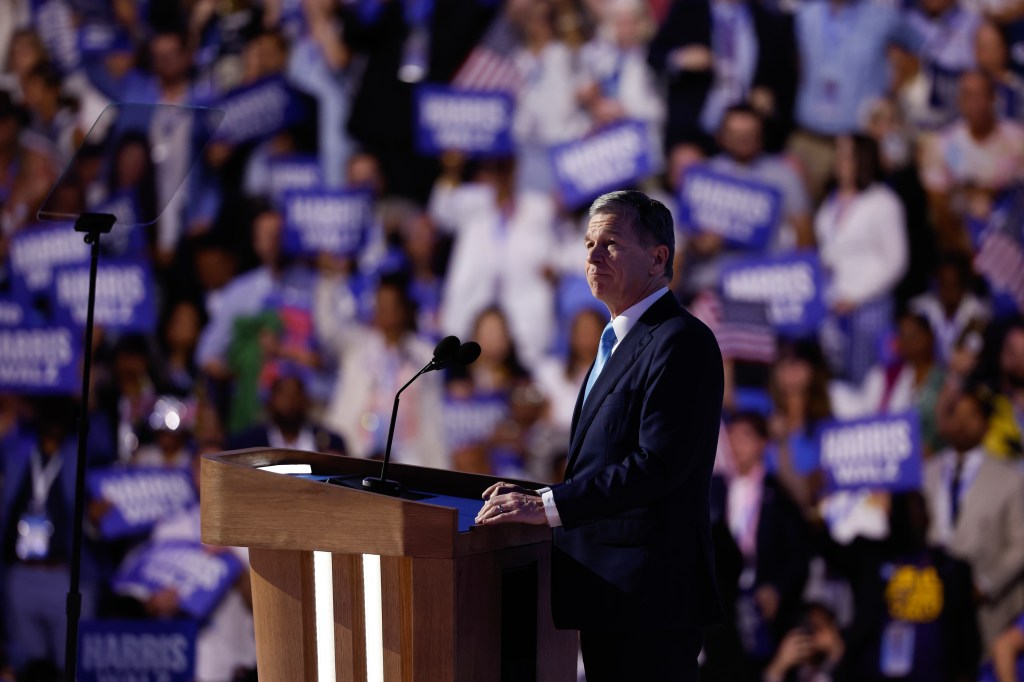

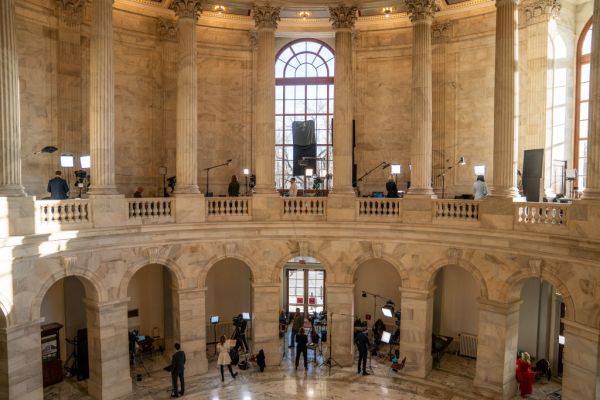
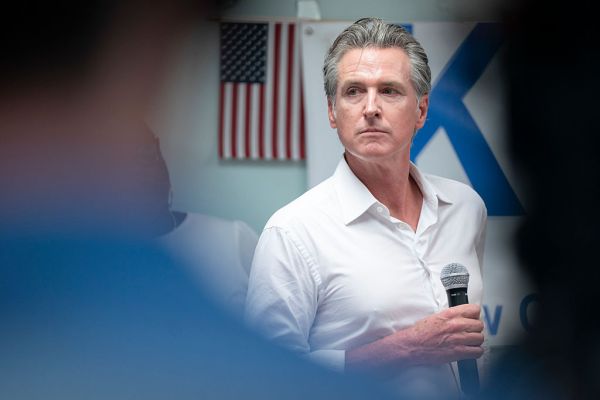


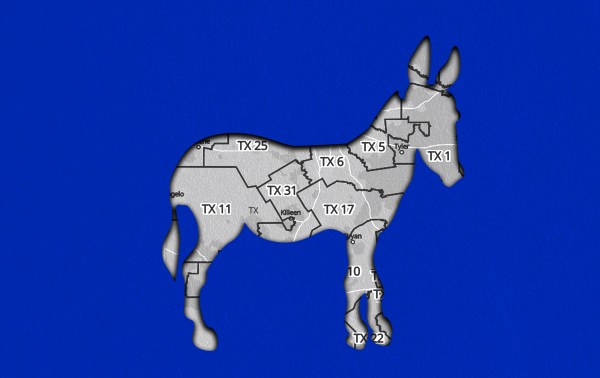
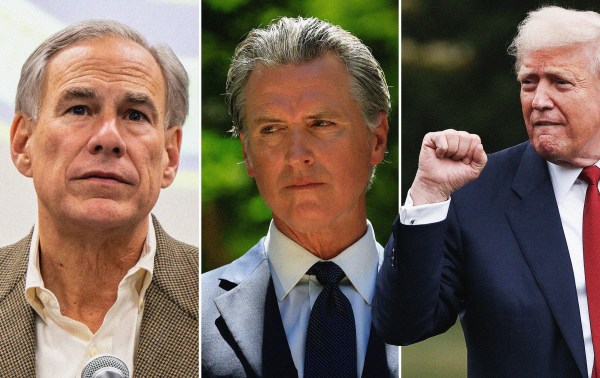

Please note that we at The Dispatch hold ourselves, our work, and our commenters to a higher standard than other places on the internet. We welcome comments that foster genuine debate or discussion—including comments critical of us or our work—but responses that include ad hominem attacks on fellow Dispatch members or are intended to stoke fear and anger may be moderated.
With your membership, you only have the ability to comment on The Morning Dispatch articles. Consider upgrading to join the conversation everywhere.